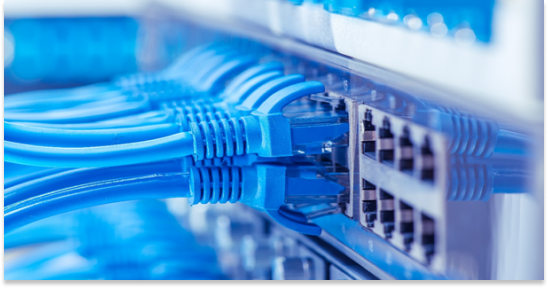Do YouNeed an Internet Failover for Your Smart Home?

A smart home keeps you safe and comfortable with internet-connected security systems, smoke and gas sensors, and flood detectors. If you depend on internet-connected technology to protect your home and family, it’s important to have a reliable internet connection that’s always online.
No single internet connection is completely fail-proof, which is why an internet failover for your smart home is essential if you need internet access for critical operations like home security. A failover is an extra internet connection that kicks in when your primary connection goes down, which gives your smart home uninterrupted internet access – even during extreme weather and disasters.
How does an internet failover work?
A failover connection is typically a wireless internet connection such as mobile data. These connections are less vulnerable to physical damage than wired connections like cable or fiber internet, which makes them more reliable during disasters like hurricanes and winter storms.
But bad weather isn’t the only thing that will bring down your wired internet connection. High network traffic, damaged cables, data center failures, system bugs, and sabotage can all cause your primary connection to fail. A wireless failover keeps your smart home online regardless.
From a hardware perspective, a dual WAN router provides internet failover capability. This internet router has ports for two separate internet connections – usually one wired and one wireless. It senses when your primary connection is down and immediately switches service from your primary internet provider to your backup to provide uninterrupted internet access.
An internet failover doesn’t drastically change your internet experience, except to make it more reliable. Just like other internet routers, a dual WAN router provides Wi-Fi internet access for smart home devices – along with any computers, tablets, consoles, or phones in your home.
How does an internet failover protect my home?
Smart homes are safer and more convenient than other homes, but only for as long as they have internet access. While most internet outages are accidental, some are intentional. It’s most important to have a failover connection in place when someone targets your home, attempting to take your security and monitoring systems off the network so they can break in undetected.
Burglars and vandals can cut internet cables or target local hubs to suspend internet access for a single household or an entire neighborhood. While cutting live cables is extremely risky, burglars are sometimes willing to take the risk if it will get them past home security systems.
Because smart security systems are vulnerable to sabotage, most include a built-in mobile data failover. This wireless failover only protects your security system, however – not the other internet-connected devices in your home. By installing an internet failover in your router, instead of just in your security device, you can extend failover protection to your entire home.
Protect your home with a 5G or 4G LTE failover
Many people choose 5G or 4G LTE as their wireless failover connection. This popular option connects your router to local cell towers. It sends and receives internet data over the same radio frequency bands as cell phones, but it’s much stronger than a cell phone or mobile hotspot.
A fixed 5G or 4G LTE connection is a great smart home failover – and a good primary internet option for people in areas without cable or fiber internet access. To find fixed mobile data options in your area, check the coverage map or give us a call at 866-439-6630 for a coverage check.





